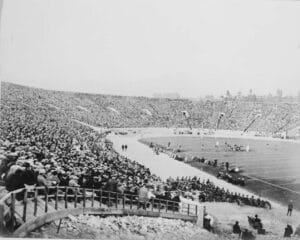The Indian Premier League started in 2008 and swiftly established itself as cricket’s most high-profile Twenty20 franchise competition.
Australian legend Shane Warne captained Rajasthan Royals to the title in the inaugural season and, since then, the IPL has attracted the biggest international stars in T20 cricket, as well as launching the careers of some brilliant Indian players.
Drama Starts at the Auction
Even before a ball is bowled each season, the IPL delivers drama in the form of the pre-tournament player auction.
Each team is allowed to retain four members of their squad from the previous season but the rest of the roster is decided in the auction.
Keeping to a set budget, the franchises must find the right blend of batters, bowlers and all-rounders, splashing the cash on big-name overseas stars while also trying to unearth potential gems among the uncapped Indian players up for auction.
The player auction tests the recruitment strategy of the team management as a balanced squad is the key to success in T20 cricket.
Life-changing contracts are on offer, both for international and domestic players, and the 2022 ‘mega auction’ included lucrative deals for Mumbai youngster Ishan Kishan, England all-rounder Liam Livingstone and uncapped India fast bowler Avesh Khan.
Growing IPL Follows Similar Format
For most of the IPL’s history, eight city-based franchises have competed for the title each season but the competition was expanded to ten teams in 2022 when Gujarat Titans and Lucknow Super Giants joined the fray.
The tournament format has remained largely consistent, with a league stage in which teams play against each other home and away, although the 2021 and 2022 editions have been held at neutral venues in the UAE, Mumbai and Pune.
The teams who finish in the top four of the league table qualify for the end-of-season playoffs, culminating in a one-off final to determine the champions.
Twenty20 competitions such as the IPL feature matches in which each team bats for 20 overs. In the first six overs of each innings, known as the Powerplay overs, the bowling team is allowed only two fielders outside the 30-yard circle, encouraging batters to target early boundaries.
If an IPL match ends in a tie, a Super Over – effectively a one-over shootout – is used to decide the winners. The batting side can lose a maximum of two wickets in the Super Over and the team scoring the most runs wins the game.
Look Back in Time
Going into the 2022 season, Mumbai Indians have been the most successful team in IPL history, lifting the trophy on five occasions under the captaincy of India opener Rohit Sharma.
Chennai Super Kings have the edge over Mumbai in terms of consistency, however, reaching the playoffs in 11 of their 12 campaigns, winning four titles and finishing as runners-up five times.
Kolkata Knight Riders won the IPL in 2012 and 2014 and KKR have had two of the tournament’s greatest all-rounders: West Indian pair Andre Russell and Sunil Narine, who have both been named player of the series on two occasions.
Indian batters Virat Kohli, Shikhar Dhawan, MS Dhoni and KL Rahul are among the leading runscorers in IPL history while Australia’s David Warner won the Orange Cap (awarded each season to the batter with the most runs) in 2015, 2017 and 2019.




